Condominium living offers a unique blend of private ownership and shared community. This shared community often comes with rules and regulations known as Covenants, Conditions, and Restrictions (CC&Rs). These CC&Rs govern various aspects of condominium living, including rental restrictions. When a unit owner rents out their unit without adhering to these restrictions, it can lead to legal disputes and complications.
Now, let’s explore the legal considerations surrounding unauthorized rentals in condominiums.
Understanding Condominium CC&Rs
CC&Rs are legal documents that outline the rules and regulations governing a condominium association. They are recorded with the county recorder’s office and are binding on all unit owners. CC&Rs serve to protect the interests of the community and maintain property values.
Rental restrictions are often included in CC&Rs to control the number of rentals in the complex, ensuring a stable community and preserving the quality of life for residents.
Common Rental Restrictions in CC&Rs
CC&Rs may include a variety of rental restrictions.
One common restriction is a minimum lease term, such as six months or a year, to prevent frequent turnover and maintain stability within the community.
Another common restriction is owner occupancy, which mandates that a unit owner must reside in the unit for a certain period before renting it out. This helps foster a sense of community and ensures owners have a vested interest in the property.
Some CC&Rs may also include rental caps, limiting the number or percentage of units that can be rented out at any given time. This helps to prevent the complex from becoming overrun with renters and maintains a balance between owners and tenants.
Screening requirements, such as background checks or credit checks on potential tenants, may also be included in the CC&Rs to protect the community from undesirable tenants.
Finally, some CC&Rs may require unit owners to submit lease agreements to the condominium association for approval, allowing the association to review the terms of the lease and verify compliance with the CC&Rs.
Consequences of Unauthorized Rentals
When a unit owner violates rental restrictions, the condominium association may take various actions.
The first step is typically to issue written warnings to the unit owner, notifying them of the violation and demanding compliance. If the owner fails to comply, the association may impose fines for each violation, which can accumulate over time.
In more serious cases, the association may file a lawsuit against the unit owner to enforce the CC&Rs and seek an injunction to stop the unauthorized rental.
The association may also place a lien on the unit to secure the payment of fines or legal fees. In some cases, the association may even have the right to evict the unauthorized tenant.
Legal Considerations for Unit Owners
Unit owners must familiarize themselves with the CC&Rs and adhere to the rental restrictions. Before renting out their unit, they should carefully review the CC&Rs and understand the rental restrictions as outlined. If there is any ambiguity or confusion regarding the rental restrictions, they should consult with an attorney specializing in real estate law.
If there is a need to deviate from the rental restrictions, they should communicate with the condominium association and seek their approval. It is also important for unit owners to maintain records of all communications, lease agreements, and rental-related documents.
Legal Considerations for Condominium Associations
Condominium associations have a responsibility to enforce the CC&Rs and protect the interests of the community. When dealing with unauthorized rentals, they should verify that all enforcement actions are lawfully taken in accordance with the CC&Rs and applicable laws. They should also maintain detailed records of any violations, including dates, times, and evidence.
Communication with the unit owner should be clear and concise, outlining the violation and the required actions. If necessary, the association should consult with an attorney specializing in community association law to verify compliance with legal requirements.
Manning and Meyers | Your Condominium Management Experts
Unauthorized rentals in condominiums can lead to legal disputes and disrupt community harmony. Both unit owners and condominium associations must understand and adhere to the CC&Rs to avoid legal complications. By following the guidelines and best practices outlined in this blog post, you can help verify compliance and maintain a thriving condominium community.
We can provide legal guidance and representation on unauthorized condominium rentals and other real estate matters. Contact us today to schedule a consultation.
FAQs About Unauthorized Rentals in Condominiums
Q: Can a condominium association prohibit rentals altogether?
Yes. In some cases, condominium associations can impose restrictions that effectively prohibit rentals. However, such restrictions must be reasonable and comply with state and local laws.
Q: What can I do if my neighbor is renting their unit illegally?
If you suspect a neighbor is violating rental restrictions, you can report the violation to the condominium association and provide any evidence you may have.
Q: Can I be evicted if I rent out my unit without authorization?
In some cases, yes. If the CC&Rs allow for eviction as a remedy for unauthorized rentals, and the association follows due process, you could be evicted.
Q: What are the legal implications of renting out my unit on a short-term basis, such as through Airbnb?
Many CC&Rs have restrictions on short-term rentals. Violating these restrictions can lead to fines, legal action, or even eviction.


